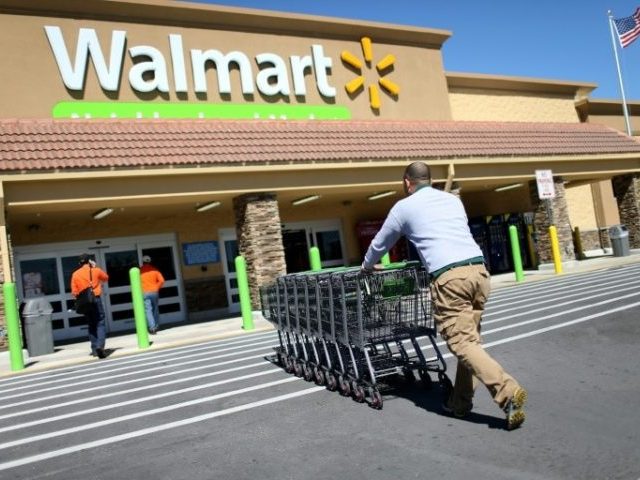Walmart will be raising its minimum wage for hourly employees at all U.S. stores next month to better compete with starting pay rates.
Starting in early March, hourly workers for the retail behemoth can expect to see their wages raise from $14 to $19 an hour, increasing from the previous $12 to $18 per hour. Walmart spokesperson Anne Hatfield confirmed the change to USA Today. As many as 340,000 employees could feel the impact of the wage increase.
The increase comes after top Walmart competitor Amazon raised its average starting pay for front-line workers from $18 to $19 per hour last October. Amazon still has a company minimum wage of $15 per hour.
Walmart president and CEO John Furner also said in a note to employees that the company will make “targeted investments in starting rates for thousands of stores, to ensure we have attractive pay in the markets we operate.”
Furner added that he expects the U.S. average hourly wage to pass $17.50:
At Walmart, we know our people make the difference. And as you continue to focus on your customers, we’re focused on investing in you – our store associates – through higher wages and new opportunities to gain the skills to serve tomorrow’s customers and grow a career with Walmart.
Furner noted that Walmart truck drivers make as much as $110,000 in their first year on the job.
By subscribing, you agree to our terms of use & privacy policy. You will receive email marketing messages from Breitbart News Network to the email you provide. You may unsubscribe at any time.
According to USA Today, Walmart will soon be adding “college degrees and certificates to its education program, Live Better U, which covers tuition and fees for part-time and full-time workers, and broadening its Associate-to-Driver Program, which helps employees become truck drivers.”
Retail sales also took a dip this past December for a second consecutive month, mostly due to rising inflation and cost of using credit cars, which has slowed consumer activity.
“Retail sales fell a worse-than-expected 1.1% in December, following a revised 1% drop in November, the Commerce Department reported Wednesday. In October, retail sales ticked up 1.3%, helped by early holiday shopping,” noted the Associated Press.
“Auto sales declined as rising interest rates for auto loans crimped demand,” it added. “That, and falling gas prices, helped to pull overall retail sales lower. The December figure marked the biggest monthly decline in 2022.”

COMMENTS
Please let us know if you're having issues with commenting.